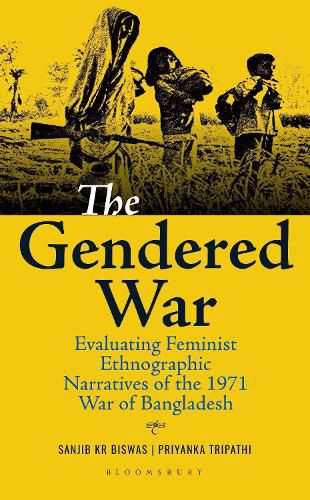Readings Newsletter
Become a Readings Member to make your shopping experience even easier.
Sign in or sign up for free!
You’re not far away from qualifying for FREE standard shipping within Australia
You’ve qualified for FREE standard shipping within Australia
The cart is loading…






The book rereads the historiography of the Liberation War of Bangladesh in 1971 documented by Bangladeshi, Indian, and Western historians to trace the position of women who share a negligible place in the gendered war history. It analyses how contemporary novels of South Asia have dealt with the war and highlights women’s issues like their subordination through blame, their agency in the war, and their victimization in the ethnic politics of their men. The book has also taken into account nonfictional works of contemporary women ethnographers and studies the lives of women who had engaged in the 1971 war not only as victims, but also as social workers, healthcare professionals, and fighters, and whose voice has been continuously suppressed in the post-war situation of Bangladesh. The book follows a postmodern approach to evaluate the ethnographic metanarratives in the forms of ethnographic fictions, oral history, interview, and memoirs in order to challenge women’s neglected place in the historical grand narratives of the 1971 war.
$9.00 standard shipping within Australia
FREE standard shipping within Australia for orders over $100.00
Express & International shipping calculated at checkout
The book rereads the historiography of the Liberation War of Bangladesh in 1971 documented by Bangladeshi, Indian, and Western historians to trace the position of women who share a negligible place in the gendered war history. It analyses how contemporary novels of South Asia have dealt with the war and highlights women’s issues like their subordination through blame, their agency in the war, and their victimization in the ethnic politics of their men. The book has also taken into account nonfictional works of contemporary women ethnographers and studies the lives of women who had engaged in the 1971 war not only as victims, but also as social workers, healthcare professionals, and fighters, and whose voice has been continuously suppressed in the post-war situation of Bangladesh. The book follows a postmodern approach to evaluate the ethnographic metanarratives in the forms of ethnographic fictions, oral history, interview, and memoirs in order to challenge women’s neglected place in the historical grand narratives of the 1971 war.